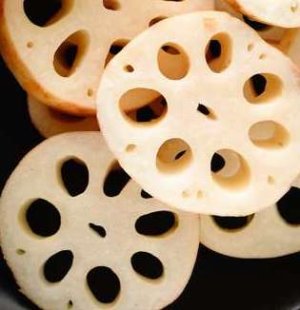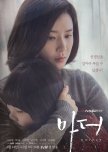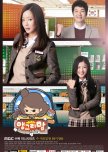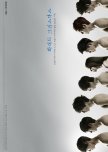
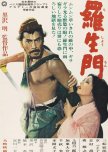
Both White Christmas, a tightly written trip to the dark side, and Rashomon, Kurosawa's mind-blowing masterpiece, have multiple protagonists with conflicting narratives. And both force their characters to confront uncomfortable truths. Also, both of these excellent works had me in suspense about how the competing narratives would play out.
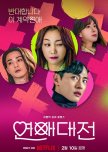
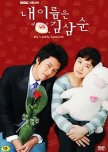
Yeo Mi Ran is a super strong woman of 2023, kicking ass and taking names not only as a skilled fighter, but also as a lawyer and as a sexual person. She's liberated and indomitable. Kim Sam Soon is the original feisty woman of 2005. True, Kim Sam Soon lacks the professional status, physical strength, and sexual freedom of Yeo Mi Ran. But she's admirable in her own right, having travelled on her own to France to become a skilled baker. And one thing both women definitely share is the desire and ability to stand up for themselves. So for fans of strong female protagonists, both dramas are total delights. Life events and people keep trying to mess with both Sam Soon and Mi Ran, and in every case these gals, sooner or later, push back for keeps.
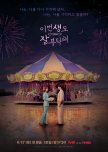
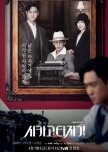
Both dramas tell moving love stories with reincarnation as a major plot device. See You in My 19th Life focuses more on a love story between two people. Chicago Typewriter tells the story of three protagonists whose past lives are part of a historical era that marked the entire country. But both dramas explore the kinds of emotions, bonds, and actions that leave marks too powerful to erase.

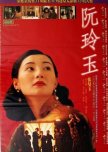
If you like the silent film industry history and scenes of historical Shanghai in See You Again, you might appreciate a real life story from that place and time. Hong Kong movie Center Stage tells the story of silent film actress Ruan Lingyu, born in 1910 in Shanghai. That's where she became a star, and where she, sadly, committed suicide at the age of 24. Center Stage is beautifully filmed, and Maggie Cheung is luminous and heartbreaking as Ruan Lingyu. While See You Again is lighter and has fantasy elements, both of these works inspire nostalgia and admiration for the artists of the past.
Angry Mom is about a mom and teenage daughter with a biological relationship, while Mother is about a teacher taking on a mother's role to save a child. What the protagonists have in common is risking themselves in dangerous rescue efforts. Some differences are that Angry Mom is more theatrical, with a few funny, exaggerated plot moments and side characters and less nuanced villains, while Mother is more gritty and realistic, with horror-like elements and fully developed, complex antagonists. Additionally, Angry Mom focuses on one mother-daughter relationship. In contrast, Mother has a number of mother and daughter characters, and explores more aspects of mothering and family. It's fair to say that Mother has more serious intent, while Angry Mom is more focused on entertaining the audience, but both dramas are excellent and share powerful messages about motherly love.

